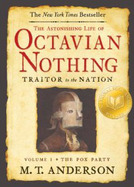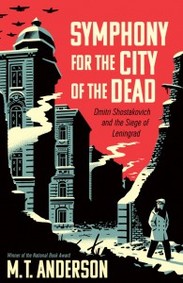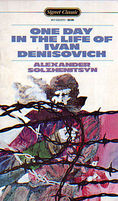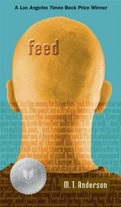| When I talk with young English Teachers—let’s leave that loosely defined as teachers with less than ten years of experience—and middle and high school students, many of them know M. T. Anderson’s Feed, but few of them know the same author’s The Astonishing Life of Octavian Nothing, Volume 1: The Pox Party (2006) . Clearly, dystopian fiction—The Hunger Games, The Divergent Trilogy, The Uglies Series, Unwind, The Last Book in the Universe, and The Giver seem to capture the imaginations of young readers and lead them to consider how the problems of today—racism, poverty, corporate greed, etc.—might play out in the future. In this week’s blog posting, I would like to consider what might happen if we can engage ourselves and our students in reading about the past—especially through young adult nonfiction. Perhaps, if they read these books, they might begin to more actively reflect on whether or not we can learn from past events. Can we learn from mistakes? Can we build on successes? Can we learn the value of the contributions of a single person with a vision? Can we collectively achieve goals that might seem unattainable? I know that I do not read as much nonfiction as I should. I admit to reading the genres that I like almost to the point of exhaustion. At the same time, I realize that if I am to successfully guide future and practicing teachers into the rich world of young adult literature I need to hold myself accountable for reading more widely. |  |

I finished reading Symphony for the City of the Dead about ten days ago. We were on vacation to Cancun, Mexico and it became beach reading that was so captivating I kept forgetting to get in the water. As we took a day trip to the Mayan ruins at Chichen Itza the two hour bus ride both directions allowed me to move quickly through the book. Frequently, reading on a bus trip can give me a headache, but not this time. First, I was ashamed about how little I really knew about the Siege of Leningrad. Second, I knew a little bit about the composer Dmitri Shostakovich, but not about his struggle to write and produce music that met the call of his own muse under the pressures of Stalin’s purges.

In order to mount this platform from which the Nobel lecture is read (It is noteworthy that Solzhenitsyn was not allowed to leave Russia at the time to accept the award and give the speech.), a platform offered to far from every writer and only once in a lifetime, I have climbed not three or four makeshift steps, but hundreds and even thousands of them; unyielding, precipitous, frozen steps, leading out of the darkness and cold where it was my fate to survive, while others - perhaps with a greater gift and stronger than I - have perished. … Those who fell into that abyss already bearing a literary name are at least known, but how many were never recognized, never once mentioned in public? And virtually no one managed to return. A whole national literature remained there, cast into oblivion not only without a grave, but without even underclothes, naked, with a number tagged on to its toe. Russian literature did not cease for a moment, but from the outside it appeared a wasteland! Where a peaceful forest could have grown, there remained, after all the felling, two or three trees overlooked by chance.
It still amazes me that we find ourselves defending the arts. In this recent era of education, we see a decline in the teaching of arts in all its forms, especially in the younger grades and for those we label as needing to “catch up” due to the score on some test that is often used for questionable purposes. Do we really expect students to flourish and succeed to their fullest potential in schools that are reduced to heavily scripted routines and curricula? I firmly believe that educational policy makers shouldn’t promote school settings, practices, and climates that they would not be happy with if their own children had to attend them.
I look forward to discussing Sheinkin's Most Dangerous next week.


 RSS Feed
RSS Feed